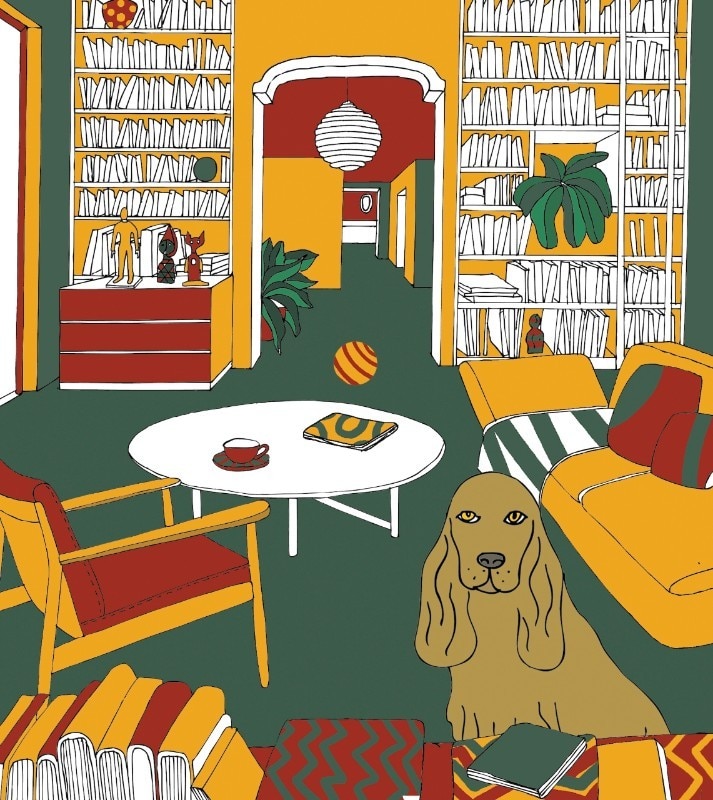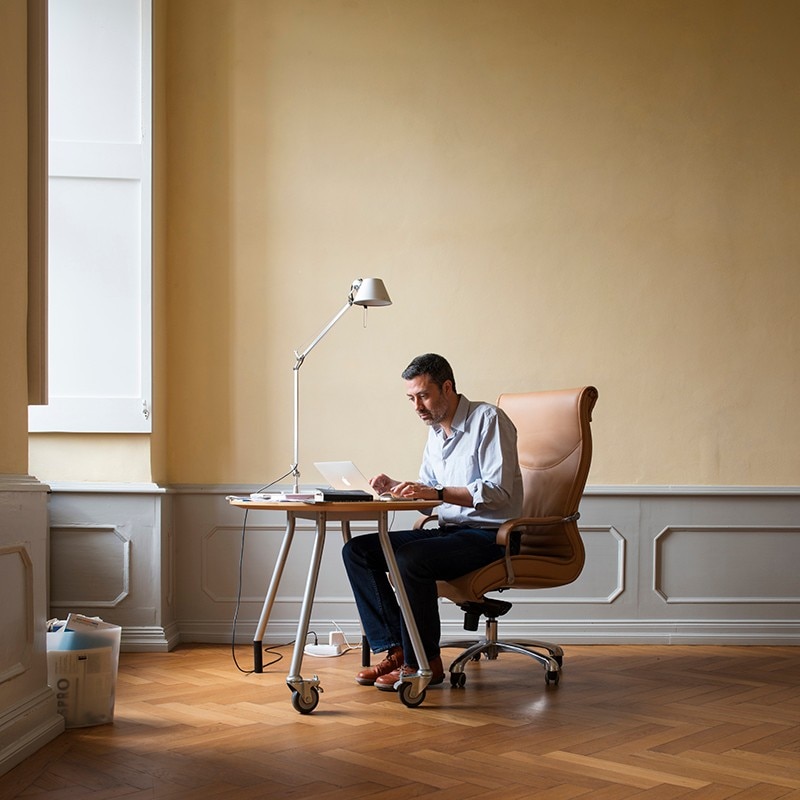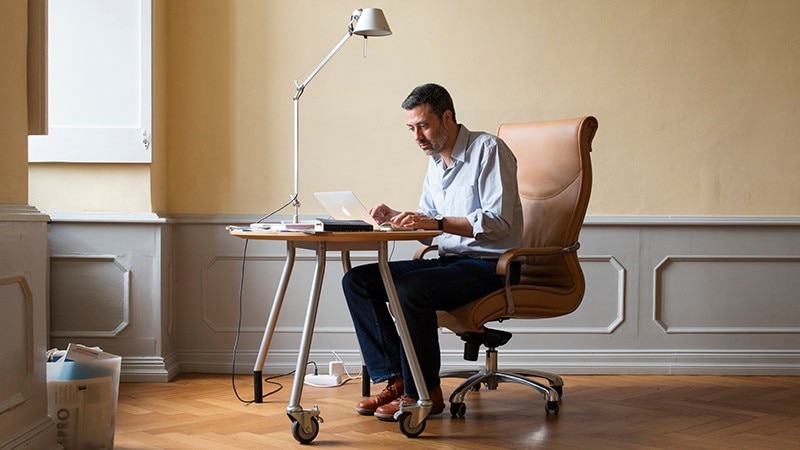his article was originally published on Domus 1064, January 2022.
I’ve always felt the instinct, before I started writing, to transmigrate into the homes of others. To this day I can’t say what the initial reason was when I first felt the urge to do this, just before I turned 30. I can’t say whether writing was the driving force or just a pretext but clearly the impulse was twofold. On the one hand I wanted to escape from the people who knew everything about me (my home) and on the other to disappear into the furnished narrative of the life of another person.
I believe I felt that it was only by withdrawing completely from myself that I could somehow achieve rebirth. Put differently, I could become other than I was, without witnesses and with a different aesthetic, landscape, and elbowroom. Which made me a kind of myself in purity and at the same time an impostor. I could invent a story, say “me” in speaking about myself but cease to be Andrea. What would later become a method developed like this, with a backpack quickly filled, some changes of clothes and a laptop.
In others’ houses I feel I’m a character in a story I didn’t write, but that it’s very easy for me to fit into.
At the time I was living in Turin, and getting to Genoa was a matter of a local train and a few Euros. The rest was crossing the Padana plain and the wind blowing from the harbour as soon as you got off the train and, finally, an apartment above Piazza Corvetto. So putting the backpack down in the doorway and sending a text message to my partner at the time (“Made it”) was the start. I was barely two hours away from home and had travelled widely in the past, yet that felt like my first journey.

The apartment was on the first floor of a building dating from 1890. You reached it by walking along two hairpin curves of cobblestone streets, on which even the cars, with mysterious dexterity, managed to park. The apartment was bright. It rose in the way everything in Genoa either rises or is overshadowed by the buildings soaring opposite. A hundred square metres, with shelves up to the ceiling stuffed with books and a space imaginatively subdivided during renovation. I especially remember the bathroom, which was the biggest room in the whole house: a labyrinth and then an armchair by the shower. The rest was the taste of the friend who lived there. One step into the kitchen, her room in a sort of hidden pocket and next to her bed that of the cocker spaniel that shared its life with her.
More than 20 years older than me, my friend Lorenza was, in the way of friendship, herself a home. She would come and go, letting me use space and time as I chose. In the morning, I would sit at her desk, at night I encumbered her living room. I would take my bed out of the sofa and lie there, like a traffic island. She had to go round me to reach the bathroom and kitchen. Before falling asleep, I would say goodnight to her, and she would reply from her hidden pocket.
Now that I think about it, almost 20 years later, I realise that in moving in, protection played an important part. While writing, I would have to go through the unknown and to do it I wanted to feel that someone had my back. Deep down I knew it even then.
The objects, the photos arranged on the shelves, the furniture, all recount what is most human: finding our place in the world and making the world a place that resembles us.
I was writing a long letter that was also a child’s farewell to a mother who had left, first going thousands of miles away and then ending forever among those we keep only in memory. Walking down that road by tapping my fingers on the keyboard made me hold my breath in fear and excitement each day. I felt I had to walk lightly, I had to lose weight so as not to break things, not to shatter the sentences stretching away across the paper.

Every morning, after writing, I would take Lorenza’s spaniel, open the door and go for a run at the Righi park. We would leave the car and then take off, speeding high above the sea. Lupe would run before me, leading the way happily, her ears flapping like wings. Of those months I remember the silence of the apartment, the dinners of few or many words and Lupe curled up at my feet when I wrote as eyes watched me from the photos hanging everywhere.
Plus the visits from my partner who used to come and see me in that elsewhere, which was much farther away than the 170 kilometres separating Genoa from Turin. She would watch me walking about that strange space, walking about a city that wasn’t mine and I wondered what she saw in the eyes of that visibly distant man.
Writing about those houses means writing about what we seek in the depths, the sense of ourselves within a story.
Apart from sporadic returns, I would finally go home a couple of months later, 15 kilos thinner, with a novel completed, and together we would realise that the most dangerous journey is the one I take each time with words. But we got to know each other again and life went on the same and completely different. The apartment above Piazza Corvetto has since taken different forms. The bathroom has meanwhile been turned into a bedroom, perhaps its natural destiny, and the bedroom has become a guest room. A couple rent it and live there.
Lorenza now lives in Milan, in an apartment I’ve never seen. Lupe is no more. In March 2020 she joined those we keep only in memory and memory moves in writing. If You Kept a Record of Sins, the novel I wrote in that apartment, owes a lot to her. She taught me about the fear of abandonment and about unconditional love, sleeping between my feet and flapping her ears happily when she heard me come in.


